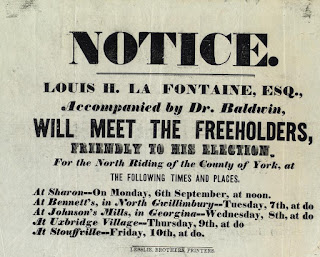In the rapidly changing situation regarding vaccine passports and vaccine mandates and requirements for entry to restaurants, theatres, galleries, stadiums, and the rest, I've been struck by the non-participation of post-secondary institutions -- and their faculties in particular.
Apart from Seneca College and one or two other outliers, most post-secondary institutions in Canada have been either silent or extremely non-enthusiastic about making (or even addressing) what seems like the obvious choice: to make attendance on campuses, classrooms, and student residences this fall conditional on proof of vaccinated status. (Yes, with some exceptions where warranted, but still....)
I guess these decisions are largely made by governing boards, with the advice of their administrators and legal counsel, And one can imagine them being cautious, business-oriented, and very eager not to get on the wrong side of the provincial premiers who foot the bills. But it's the silence of university Senates and faculty organizations that is really striking.
I notice this, I think, because in recent years I've been repeatedly struck by how professors have in recent decades increasingly adopted a sort of company-man subservience to their institutions and administrators, outsourcing all kinds of policy matters, including ones that ought to be of vital concern to scholars and teachers, to "the boss." Some doctors who double as medical faculty have certainly been outspoken on Covid policy issues throughout this pandemic, but shouldn't we expect faculty to speak out about safely reopening their workplaces -- and to have some institutional capacity to do so?
If university and college faculties across the country took a leading stand on this matter, they could really shift the institutional response -- and public opinion. And some leadership on this matter seems urgently needed from somewhere.
Update, August 10: Okay, so yesterday the University of B.C. Faculty Association officially asked the president of the university to institute a vaccine mandate and other measures on campus.
We therefore call upon UBC to adopt an indoor mask mandate in all its spaces and a vaccine mandate for all its employees and students (subject to the normal legal exemptions) in advance of the September reopening.
Not because of anything they read here, I am sure, but a sign that perhaps academic communities do still survive to some degree. More to come?







.jpg)







